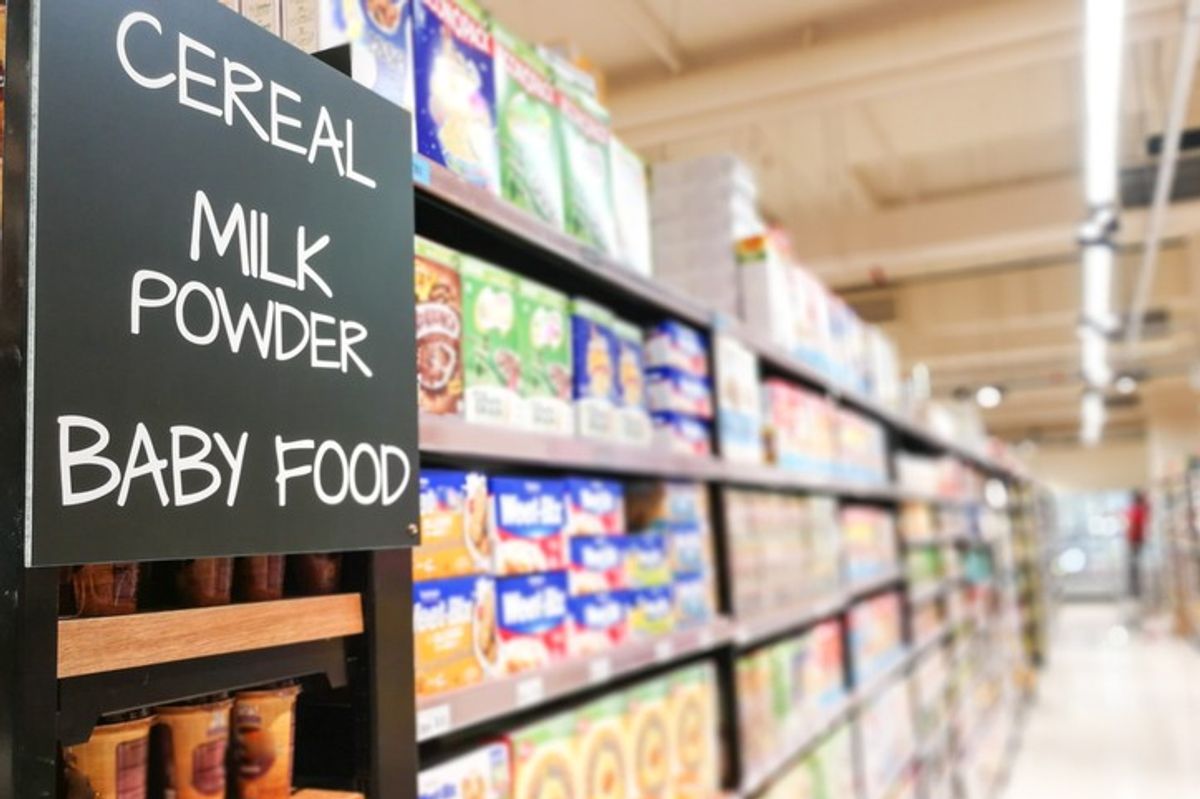Traditionally in our country, pharmacies have been the main commercial channels for baby food distribution. However and very interestingly, there has been a constant steady movement of such products in grocery stores in recent years.
Stocking baby and toddler food is a total win-win solution. It can not only attract consistent footfall but also help in gaining loyal customers who will keep rushing back to stores for some last-minute supplies for their little ones and grabbing other stuff too on their way out, thus becoming pivotal in increasing sales.
In fact, baby food was majorly responsible for SPAR’s buoyant festive holiday sales this year, leading to an overall year-on-year growth of 2.3 percent with baby food leading the growth.
Importance of commercial baby and toddler food can be ascertained by the fact that almost half (45 percent) of mothers of 8-10-month-old babies use commercially prepared baby foods daily. Nutritional content, reduced microbial load and high taste profile make these packed baby foods a must-buy for households with babies.
No wonder, the UK baby food market is forecasted to rise 15.6 percent to £834.6 million in 2024, equivalent to a rise of 3 percent in real terms. Volumes will decline slightly, although finger foods will gain ground, market report claims. While declining birth rates have impacted the baby-care category, baby food is still growing, driven primarily by innovation in snacks, which in turn is growing 22 percent in value sales, and gaining a 4.9 percent value share of baby food sales.
Toddling Trends
There is no doubt that the market for pre-prepared food and snacks for infants is changing rapidly. The category has morphed from a simple selection of jarred purees, to an exciting and innovative array of pouches, mini-pots, steam-meals, sauces, baby pasta and even baby stock cubes. The list goes on and is constantly growing.
Good news here is that these endless innovations in this category have a positive impact on the overall market growth.
Infant formula dominates, accounting for 57 percent of value sales and 44 percent of volume. Breastfeeding rates remain relatively low, and manufacturers have succeeded in selling more milk for older babies, as well as more premium products, fueling growth.
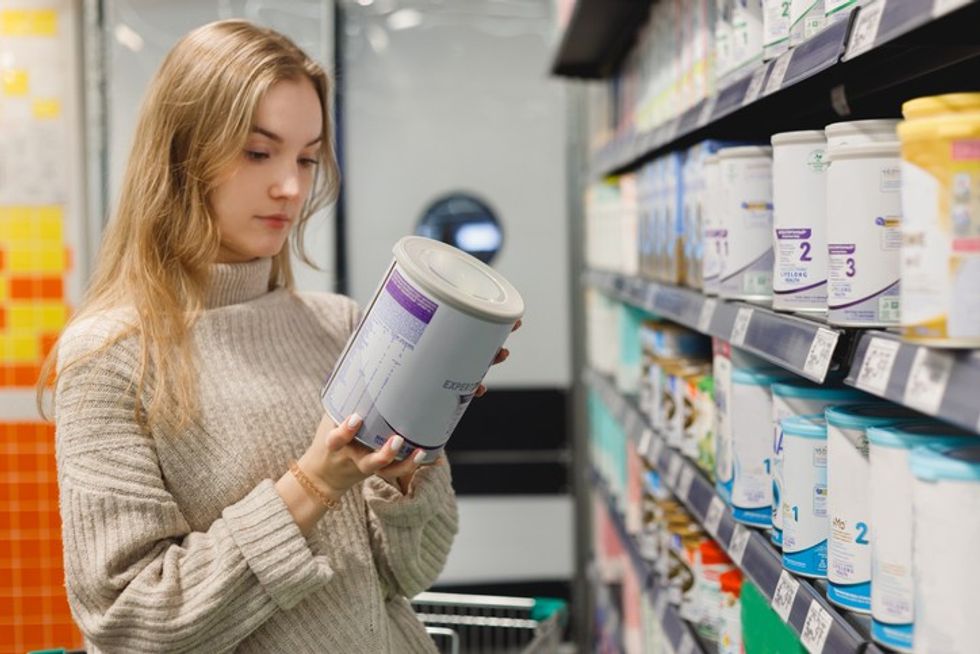
The baby and children’s food market now encompasses a wide range of products from infant formula to pre-prepared foods, lunch box treats and kid’s ready meals. Across all ranges, pouches are now outselling jars by three to one and constitute a 56 per cent(59 per cent in convenience) share of this increasingly popular sub-category. Baby cereals are also something that is catching the attention of parents owing to its association with milk.
Finger foods have been the most buoyant category, with a high level of innovation.
Across all food categories, no added sugar claim is gaining traction increasingly. And this forms the utmost priority in this aisle. Both makers as well as the shoppers are keeping such a claim at a high pedestal-something which is shaping their buying behaviour.
No wonder, Kendamil and Piccolo had triple-digit growth in 2021, majorly owing to emphasis on their organic and palm oil-free credentials.
There is also an ongoing shift away from milk powder to higher-margin ready-to-drink formats. Eyeing this trend, Kendamil recently launched a ‘Ready to Feed’ baby milk — with claims of being the first (and only) one in the UK of such a kind, following demand from parents. The product’s shelf-life is 12 months, surpassing other brands offering just nine months.
Baby food market is witnessing substantial growth owing to the rising demand for organic food, which is proven to be healthy and full of nutrition components. Plant-based baby and toddler food is something which is seeing a lot of innovation and development owing to the overall rise in popularity of vegan living.
According to one survey conducted in 2019 by Future Market Insights, 81 percent of households with children include plant-based protein in meals and 40 percent of parents with children under 18 are incorporating more plant-based food.
British vegan baby food startup Mamamade recorded a 300 percent increase in sales in just a few months last year, showing that there is huge demand, and plant-based infant formula brand.
Gerber too is tapping into this trend with the launch of its new plant-based baby food line made with a variety of beans, legumes, veggies, and fruit. The new seven-item line includes organic toddler snack pouches, crunchy snacks, and bowl meals (such as Vegan Mac) all formulated with plant-based proteins derived from beans, legumes, vegetables, and fruit.
Manufacturers are seen pushing the limits of baby food beyond the boundaries of the aisle into dairy and chilled ready meals with a sole purpose to keep parents locked into the category by innovating products for older children.
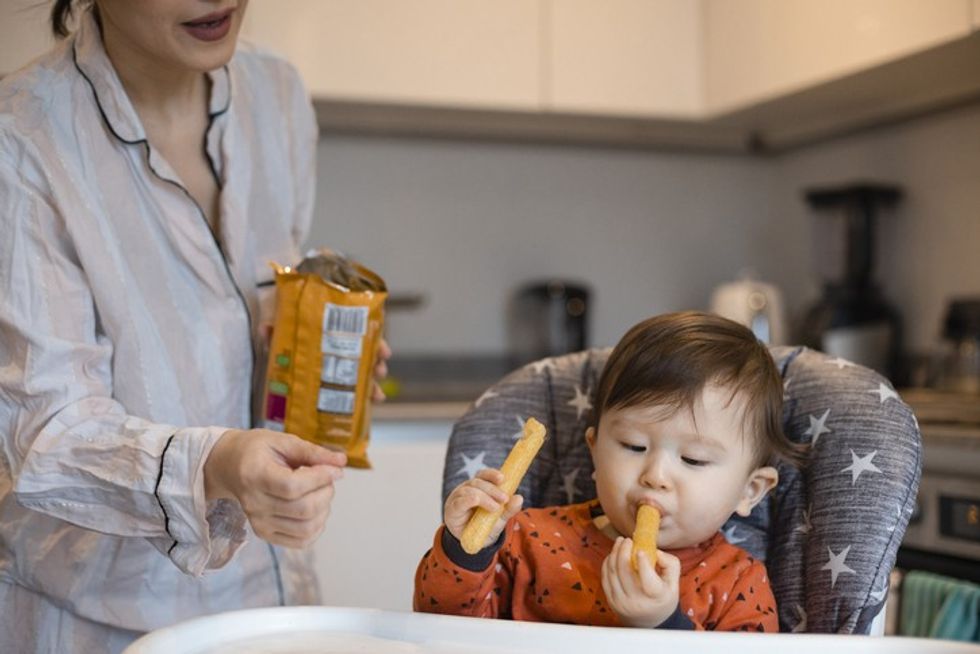
The growth of both finger food and new ambient toddler ranges has had a particularly positive impact in keeping shoppers in the aisle longer. The growth has been rapid so much so that the infant ready meal category did not exist prior to 2006.
Furthermore, safety measures in terms of baby food packaging is a major concern among young mothers with the eco-friendly packaging gaining traction which in turn is pushing many companies to make their products stand out in the market.
Ella’s Kitchen, along with Organix and Kiddylicious, has benefited from growing demand for brands with strong sustainability and ‘natural’ credentials, as well as ongoing range expansions over recent years.
Yellow & Go from Piccolo, on the other hand, claimed to provide UK’s first 100 percent recyclable pouches, suitable for kerbside recycling. However, it has an RSP of £4 for a pack of four pouches, significantly higher than most of its rivals.
Popular brands including Heinz for Baby, Cow & Gate and Organix, which all have huge ranges from purées to meals in glass jars, are keen to cut down on plastic use.
Bestsellers and NPDs
Baby and toddler food market is dominated primarily by three multinational players (Danone, Heinz, and Nestlé) although relative newcomer Ella’s Kitchen is increasingly gaining popularity and have created a niche of its own.
In fact, Ella's Kitchen came out on top as the most valuable baby food and snacks brand in the UK in 2020 with a value of around £74 million in that year.
In a recent survey by Which?, Ella's Kitchen was the brand that most parents had tried something from its extensive range- be it purées in pouches, meals or snacks. It is also deemed as ideal for little ones with dietary requirements, as many of its products are free from dairy, gluten, nuts, egg and soya.
The brand recently announced the collaboration with SABIC to create a new cap made from recycled plastic under which over 3.5 million pouches of Ella’s Kitchen’s Organic Strawberries and Apples pouches will have this new cap.
Organix ranked in second place, with a value of over £35 million. The brand has just launched a new weaning food, suitable for babies aged 6 months+.
Organix’s new Little Ruskits are grabbable, munchable, mashable vanilla-flavoured finger foods that make an ideal first food for weaning babies. They are versatile as they can be mixed with a baby’s usual milk and served with a spoon at 6 months+, or served whole as a finger food from 8 months+.
While Little Ruskits are big on taste, makers claim that they are also low on sugar. In fact, Little Ruskits have been created with 33 percent less sugar on average than other branded baby rusks and biscuits. This is following consumer research that highlighted sugar content in baby biscuits was the number one concern for parents.
Perfectly portioned to fill little tummies, the Ruskits are specifically shaped to make them easy to hold to encourage self feeding, making them perfect for the first stages of weaning.
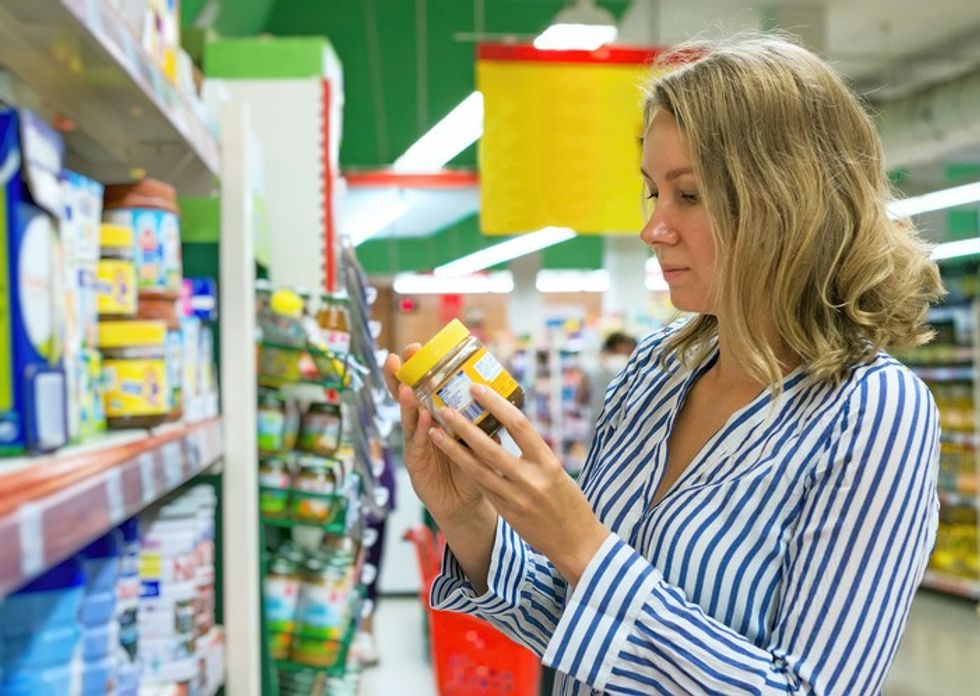
Heinz range of food for babies, which was first launched to help support parents facing the challenges of bringing up a baby in the midst of a financial crisis in 1931, still ranks high in parent’s shopping lists.
The maker is now trying to tap into vegan wave with its latest plant-based range, called Heinz for Baby Pulses. It consists of three options — Saucy Pasta Stars with Beans & Carrot, Potato Bake with Green Beans & Sweet Garden Peas, and Risotto with Chickpeas & Pumpkin. All three options are free of added sugar and salt and also claim to count towards the recommended five daily servings of fruit and vegetables.
When it comes to baby milk, Aptamil has been leading the market for the past few years now with a value of almost £164 million. Cow & Gate and SMA ranked in second and third places, respectively.
Aptamil has now announced the roll out of its award-winning Pre-Measured Tabs at major retailers ahead of an extensive summer marketing campaign, going live at the end of May.
Aptamil Follow-on Milk Tabs are created to meet three key consumer needs- convenience, accuracy and portability. With each tab equivalent to one standard scoop of formula, the pre-measured tabs are simply dissolved in water, offering a mess-free alternative to powder products, thereby providing parents and caregivers ease, accuracy and convenience while on the go in comparison to powdered formulas.
Kendamil’s new ‘Ready to Feed’ formula is also emerging as mum’s favourite. It comprises of natural cow’s milk mixed with healthy essential acids. Crucially, it is rich in algal oil — a pure marine algae substitute for fish oil, setting it apart from other leading formula brands.
In fact, Kendamil’s Ready to Feed liquid formula proved such a hit that the first batch of 40,000 bottles sold out in 45 minutes, the brand says. Launched in October, it’s the result of five years’ development and the product is the “most sustainable liquid baby milk in its class”, Kendamil claims.
Organic baby and toddler food brand, Piccolo, has also added a new flavour Mighty Oaty Bar and duo of Multigrain Puffs to its popular snack range. Piccolo is a known proponent of no-added sugar food. The brand’s range includes formula milk, purees, textured meals, teething snacks as well as cooking sauces.
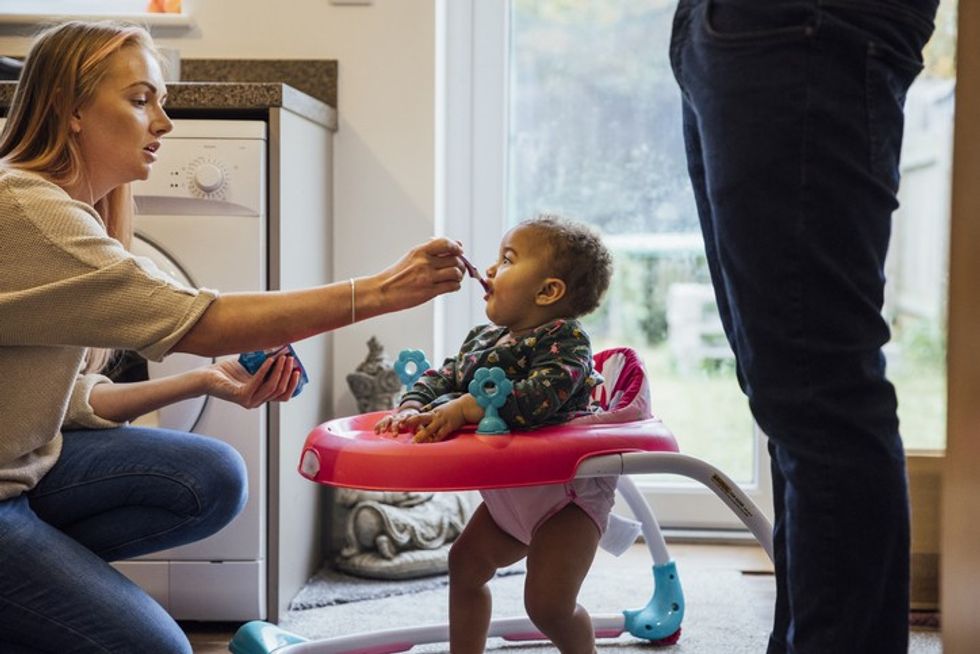
The Mighty Banana & Cocoa Oaty Bars and Multigrain Puffs are the newest additions to Piccolo’s snack range, helping parents looking for healthier options for their children.
Made using organic ingredients with no added salt, sugar or palm oil, Mighty Banana & Cocoa Oaty Bars are not only vegan and gluten free but they are both delicious and nutritious too. The bars are claimed to be high in fibre, with the addition of soft textured multi-grains and inulin, a prebiotic fibre, supporting little ones’ digestive and gut health development.
Baby snack brand Kiddylicious has also come up with a vibrant range of food specially made for 3+ years to keep mum locked in the baby aisle. The range includes toddler-friendly alternatives to mainstream adult snacks including Veggie Buttons, Popped Hoops and Fruity Drops to appeal to the untapped pre-school segment.
With the latest launch, Kiddylicious hopes to not only appeal to children but also to discerning parents with reassuring nutritional claims such as “low in saturated fats”, “packed with veggies” and “over 95 percent fruit”.
Halal baby food brand For Aisha too has launched into independent stores and local pharmacies.
Retailers can order For Aisha range of products via the trade option link at the brand’s website, while the products are delivered straight to the store by their ecommerce provider UK Brand Sales.
“We’re excited to finally have a solution to service the UK Independent sector. Many Muslim families like to shop locally for their halal foods. We’ve always wanted to launch in this sector but (until now) finding a way to service regular small orders to each Independent retailer has been a challenge,” Mark Salter, founder of For Aisha, said at the time of the launch.
For Aisha meals are all ambient and come in convenient shelf ready packaging. Claimed to be dietician-approved and made with only natural ingredients, they are also free-from dairy, soya, gluten and eggs. The 10-strong recipe range is suitable for little ones from 7 months and 3+ years of age.
Challenges
Pandemic saw a decline in sales as parents discovered that cooking at home is both convenient and healthier. With lives returning to normal, the sale is expected to pick up.
Baby food, anyway, has always been under constant regulatory scanners over the use of salt-sugar as well as nutrient claims.
Like Action on Sugar in November last year revealed that it has “uncovered alarming amounts” of sugar in many sweet snacks designed for children including weaning foods.
Researchers based at Queen Mary University of London have delved into the ingredients of 73 products sold in shops with what they say are 'healthy-sounding' features on their packets – however it warns more than one third would receive a high label for sugars based on what is inside.
Action on Sugar is now calling for the removal of what it says can be 'misleading' information on children's snacks, particularly connected to those which say no added sugar or refined sugar, when such ingredients are replaced by fruit concentrates which are still a type of free sugar and so should still be strictly limited in children's diets.
Another recent research “Archives of Disease in Childhood” claims that an average of nine promotional claims can be found on the packaging of individual UK baby foods. These claims are largely unregulated, and often imply some indirect health benefit, known as the 'healthy halo effect,' which may be confusing for parents, say the researchers.
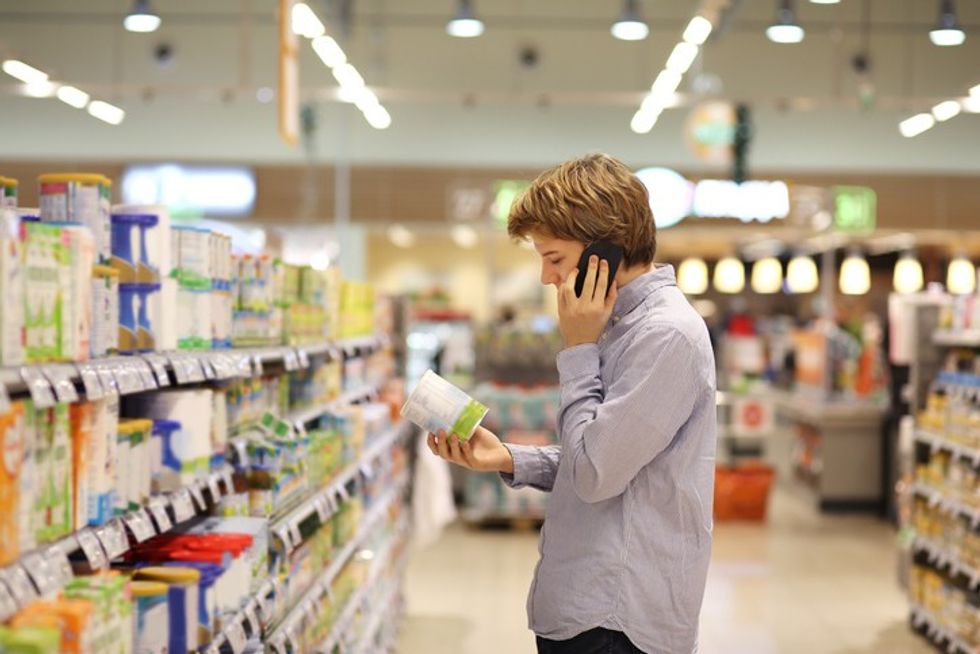
Shoppers, mainly new-age parents, are equally conscious about what they are buying and are always concerned if and when anything comes up.
Clearly, there is growing concern among parents about health and quality as well as a growing inclination towards organic and homemade-style food with lower salt-sugar level.
Such revelations often put a question mark in the shoppers’ mind over the choices they are making. Since it is the matter of their little ones, they are more cautious and sensitive over such claims.
Additionally, uncertainty over availability is higher than usual in this aisle as there is limited production of baby food in the UK. Most infant formulae sold are imported from Ireland, where both Danone (Cow & Gate, Aptamil) and Nestlé (SMA) have major plants.
Looking Ahead
Retailers new to the category should focus on a simple fixture with between three to four best-selling products as a minimum. Like, a mix of first tastes single flavour pouch for weaning, a pouch for children aged from four months, a meal pouch for children from seven months, and a few finger-food snack line is a good range to stock for beginners.
More experienced retailers, who already have a constant footfall in this aisle, should make sure the range is relevant to the latest trends and shopper demands. They should focus on replacing jars with pouches (a permanent change, it seems), and on increasing core shelf range to between six and eight best-selling products.
New-age parents, who are also millennial or comparatively young age shoppers, want more from baby food. Their expectations have been rising steadily in recent years, with the demand for organic ingredients, lower salt,less sugar and tasty, healthy recipes uppermost.
Makers have been equally and in some cases, proactively responded to the demands.
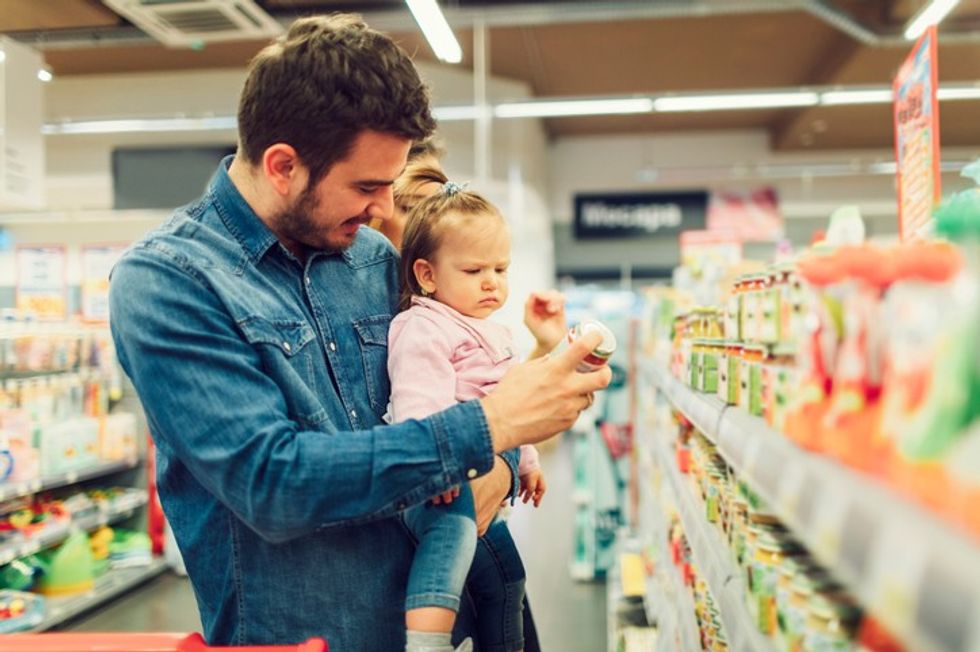
With increasingly falling birth rates, the category faces a threat. However, the end user here is special. They are super-finicky so the favourite products will continue to see a constant demand. They are also precious so the caretakers are ready to scout and find the latest, healthiest and safest available products out there.
So, even if the category shrinks, the premiumisation trend could offset declining volume by adding value.
Recommendations from friends and family are a powerful purchase driver of baby food, with 72 percent of parents of under 5’s being swayed by word of mouth.
During the pandemic, shoppers turned to local convenience stores they know and trust. It is crucial to maintain the trust and stock wisely in this section, more than ever before.
Now that shoppers and retailers are struggling with increased costs of almost everything leading to lesser basket spends and fewer store visits, it is now more vital than ever that baby food is represented well in-store so that the store becomes a one-stop solution for households with babies and young children.

